Undergraduate Research
Midland College has an exciting STEM Undergraduate Student Research Group.
Students interested in Biology, Chemistry, Engineering, Geology, Marine Science, Math and Physics have the opportunity to participate in projects led by faculty in the various disciplines. Many of the projects are collaborations with outside groups and afford students the opportunity to network with others in their areas of interest.
There are many advantages for students participating in research, including but not limited to; additional knowledge and skills, stipends, travel abroad, and finally, having the research documented on their transcripts.
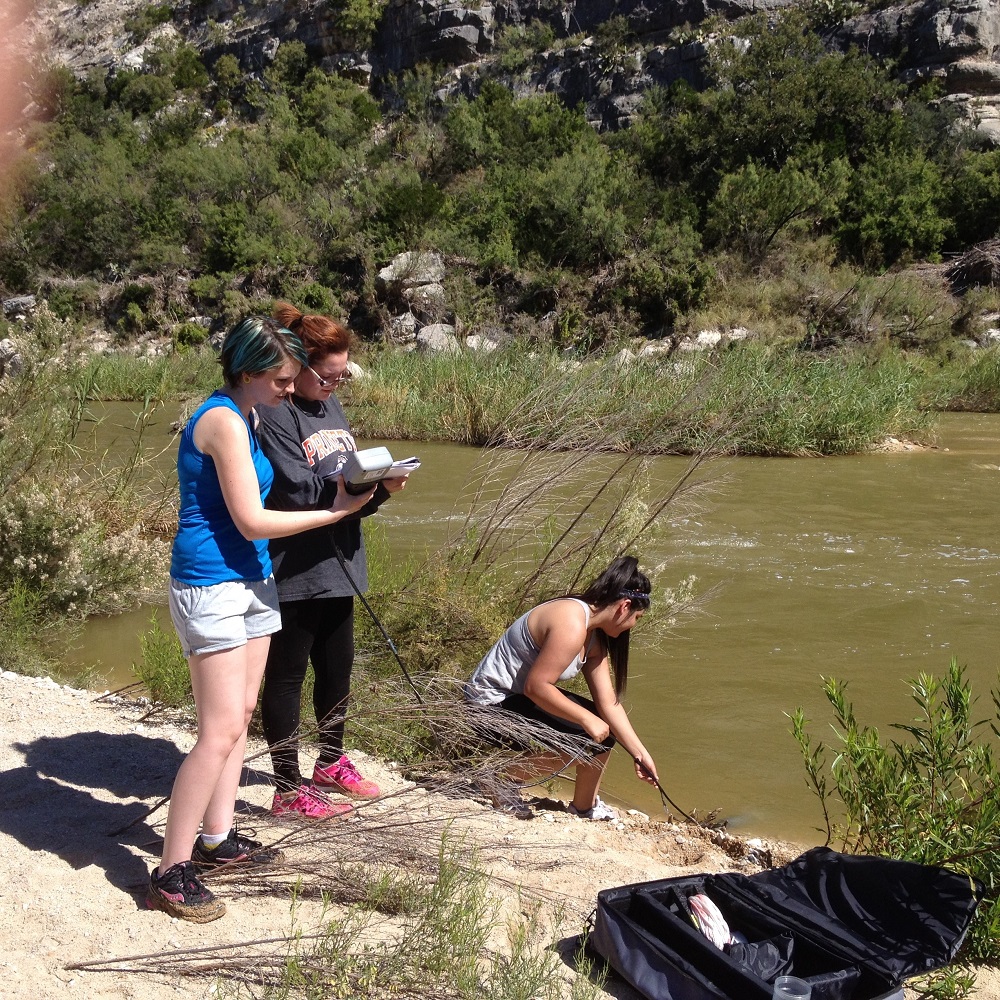 |
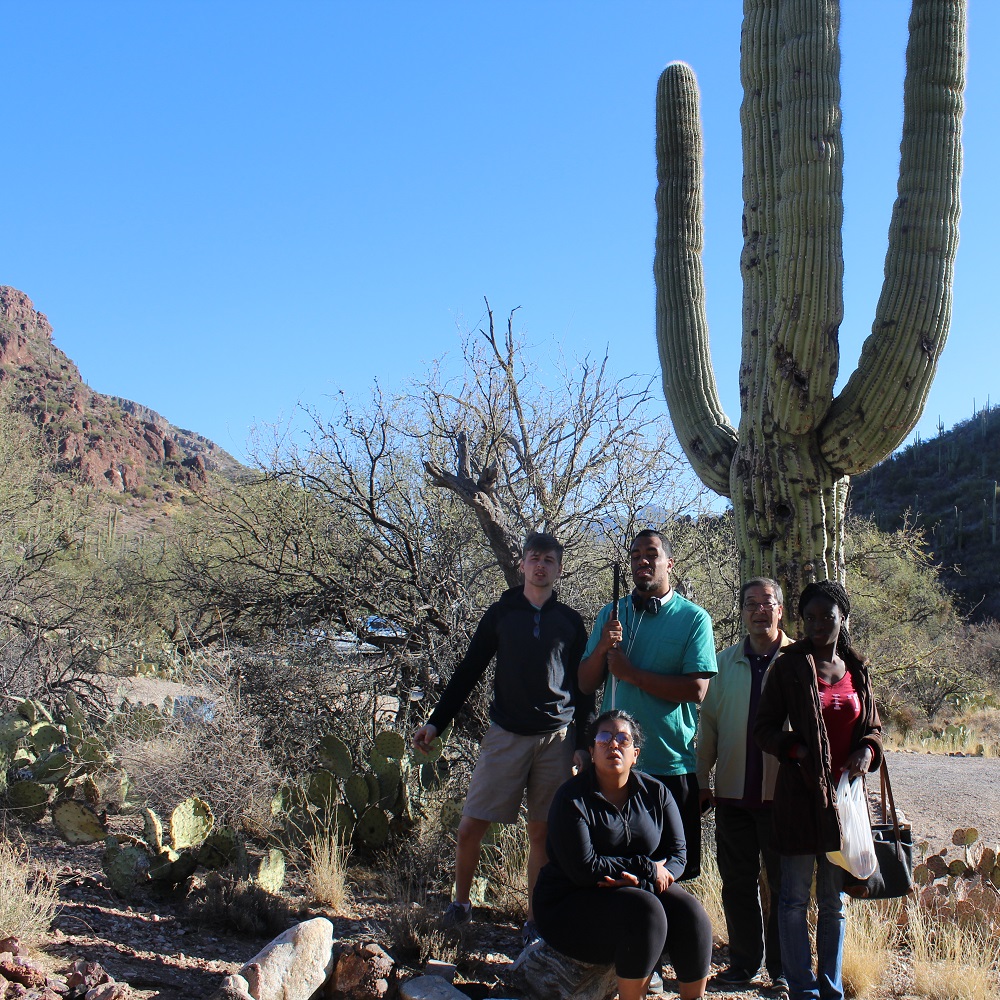 |
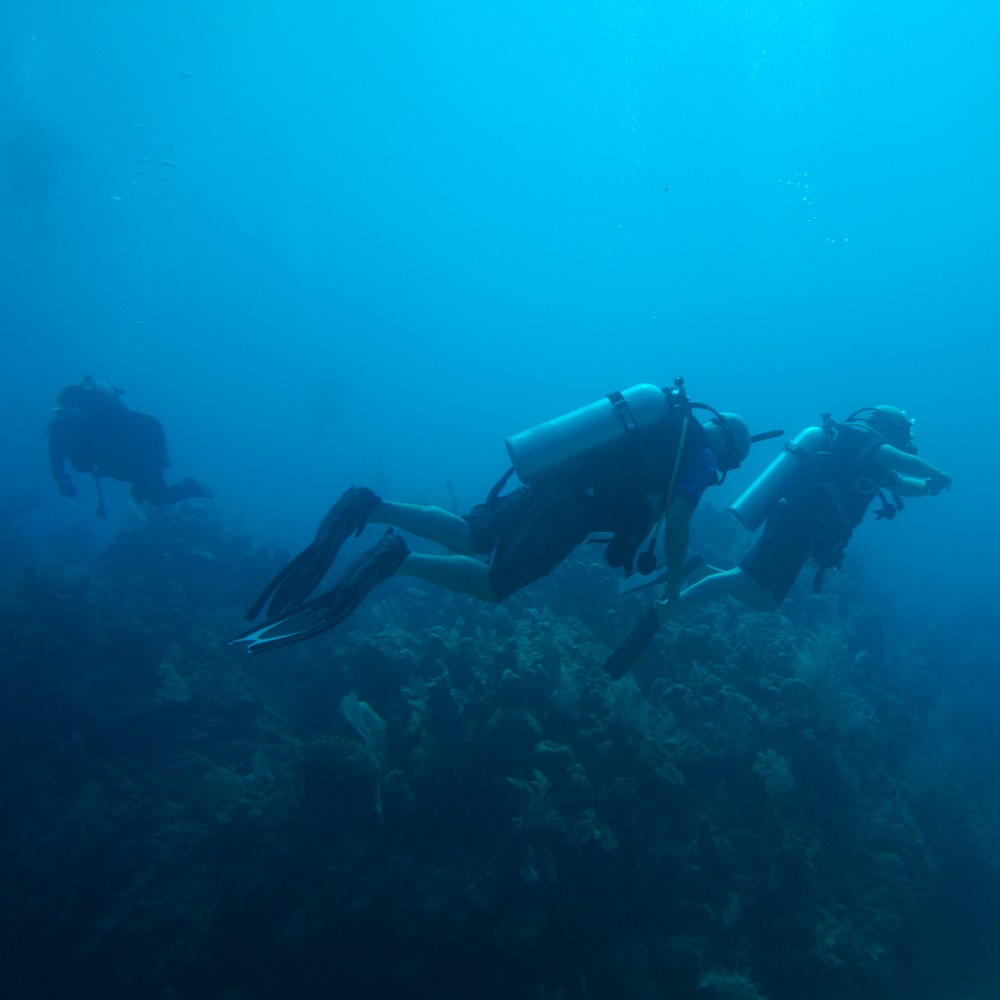 |
Subject Areas
Select links below for details
Midland College (MC) is a Clean Rivers Partner of the Texas Commission on Environmental Quality (TCEQ), operating under the oversight of the International Boundary Water Commission. MC Biology Instructor, Greg Larson, mentors students in the collection of Pecos River stream monitoring data that is maintained by the TCEQ for compliance with the State of Texas Surface Water Quality Standards.
Participation in this program involves the collection of field data (stream flow, temperature, dissolved oxygen, pH and conductivity) and chemical samples (dissolved minerals, nutrients, etc.) at two Pecos River sites on the Chandler Ranch in Terrell County, located approximately 120 miles south of the Midland College campus. MC collects data at these sites six times/year.
Midland College also participates in DNA research on the barcoding of different organisms. biological research at MC ranging from coral reef disease from cyanobacteria, and man-made reef damage. Ms. Mertens also talked about diagnosing disease from DNA-RNA analysis and DNA sequencing, PCR analysis, and qPCR analysis. Ms. Mertens talked about MC collaborating with the Texas Park and Wildlife and Sibley Nature Center in a project that trap/release dove for banding, taking samples to identify protozoan using microscopy and detecting virus using molecular techniques.
Midland College also participates in research on micro-biology and molecular biology.
Contact Information
Greg Larson
(432) 685-6732
glarson@midland.edu
Paul Mangum
(432) 685-6731
pmangum@midland.edu
Marlana Mertens
(432) 685-6759
mmertens@midland.edu
Bethany Guajardo
(432) 685-6755
bguajardo@midland.edu
Several devices used for the Roatan project were designed by the engineering department at MC. The devices include a submergible grid used to define the research area, a submersible filter, and several submergible analyzer pods with onboard sensors to monitor the water quality around the coral reef. This last summer’s trip to Roatan produced hundreds of pieces of data which need to be reduced, interpreted, and defined to determine the outcome of the project. Students interested in helping with the Roatan project’s data reduction and interpretation should contact either Dr. Gibbons or Dr. Flowers. The engineering department is also very active with different projects as well as public relations.
Contact Information
Brian Flowers
(432) 685-4586
bflowers@midland.edu
Michael Gibbons
(432) 685-4617
tgibbons@midland.edu
The geology department has several research studies on the deposition of sedimentary rock, the outcropping of formations and studying volcanoes and their lava flows and ash falls. Geological research involves in-field studies of rock formations.
CONTACT INFORMATION
Antony Giles
(432) 685-5580
agiles@midland.edu
Coral reef ecosystems are endangered world-wide. Understanding the current status, trends, and prognosis of coral reef health might eventually lead to repairing damaged coral reefs. The UT LSAMP (Louis Stokes Alliance for Minority Participation) - STEM Pathways project offers an exciting opportunity for undergraduate students to participate in one of a number of marine bioscience field research experiences at a location in the Caribbean Sea related to coral reef ecosystems.
A small group of qualified students will be selected to:
- contribute to a research project led by Midland College and the University of Texas at Arlington, or
- design & execute their own research project (with prior approval from the SCUBA director)
Preference will be given, but not limited to, qualified community college applicants. If you are ready for adventure and meet the minimum LSAMP requirements (below) you should apply!
A list of the ongoing Midland College/UT-Arlington coral reef ecosystem research projects available for students to participate in are:
- General assessment of the status of the coral reef’s health
- Coral tissue inflammation/susceptibility to disease
- Phytoplankton enumeration/characterization in ocean water
- Marine bacteria isolation/characterization (both in ocean water and in coral mucus)
- Marine bacteria genetics
- Coral genetic variation
- Marine ion-nutrient measurements (both in ocean water and in coral mucus)
- Water quality measurements (i.e. ocean water temperature, pH, dissolved oxygen, oxidation-reduction potential, conductivity, turbidity, etc.)
- Marine engineering (the development of low cost, autonomous, sensors; the development of new coral health assessment tools)
Dr. Ready is a chemistry professor at Midland College who has spearheaded the project to study the coral reefs off of Roatan, Honduras. Ready emphasized the need of the dive class and its’ importance to the Roatan project. Divers would be able to study the coral reefs up-close and take samples for laboratory analysis. Just as important as diving is to acquiring the specimen, is the laboratory analysis of the specimen, which requires non-diving researchers.
Dr. Ready is also involved in several other research projects at MC including the study of playa lakes and the role they play in recharging aquifers.
Upcoming research projects at MC include studying the rainforests of Central America and water quality of freshwater wells in Midland County.
Ready also encourages students to investigate the LSAMP (Louis Stokes Alliance for Minority Participation), the SRA (Summer Research Academy, where students will be able to perform research at a UT system university), and the SRA-A (Summer Research Academy-Abroad, giving students a chance to perform research at a true state of the art facility on another continent, including countries in Asia, Europe, and South America). Research stipends of $ 250.00/semester are possible and available to students through LSAMP after completing 1 semester as a researcher.
Contact Information
Thomas Ready
(432) 685-6748
tready@midland.edu
Report on 2022 SCUBA Project
Student Cohort for Undergraduate (marine) Bioscience Abroad
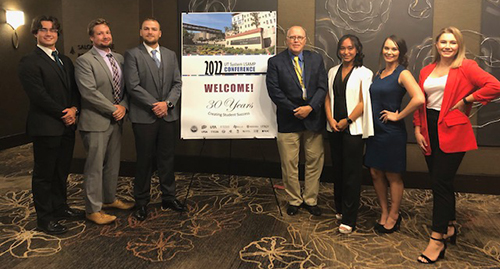
Presented by the Midland College SCUBA Cohort
UT System LSAMP Conference
August 2, 2022
The mission of this year's project:
- Provide undergraduate students an international field research experience in the Caribbean Sea.
- 2-year community college students targeted, but the opportunity was not exclusive to that group.
- Focused on aspects of coral reef ecosystems in the Caribbean Sea.
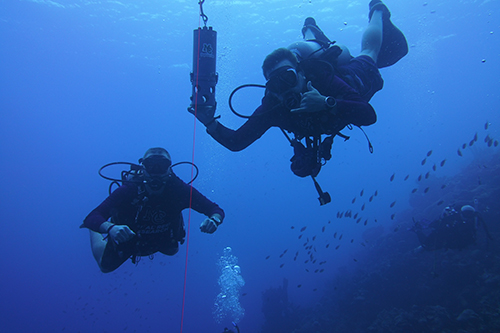 |
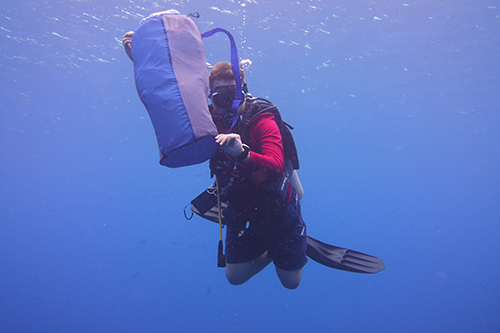 |
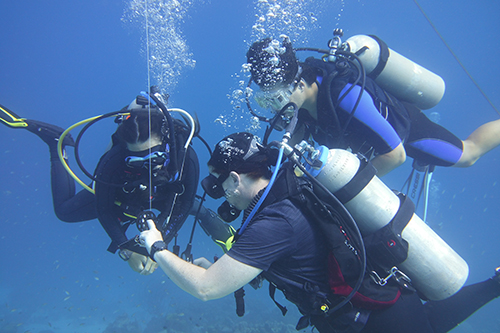 |
||
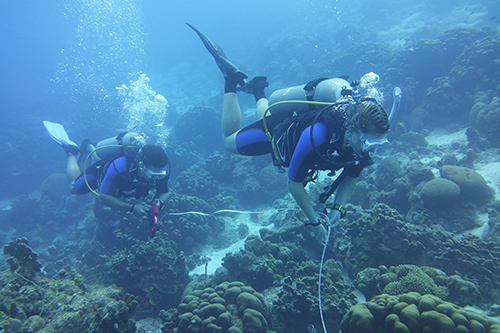 |
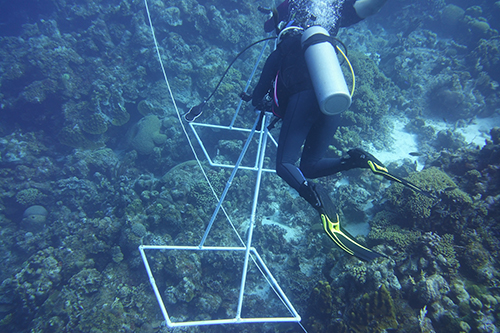 |
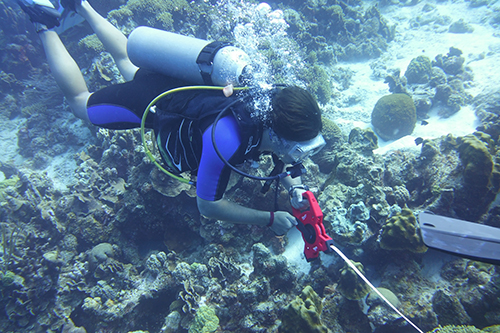 |
Mathematical Modeling
MC Mathematics students who participate in the undergraduate research program learn to answer big questions using a process called mathematical modeling. This is the process by which a student uses the math that they know in a novel way to find a justifiable solution to big, messy questions. Past research questions include finding the safest (in terms of natural disasters) place to live in the United States, determining the best way to power a single residence, and building a plan providing food for a mission to colonize Mars.
Students learn the modeling process and then answer several practice questions each semester to prepare to participate in modeling competitions. In the Spring semesters of 2019, 2021, and 2022 the research teams' papers were selected as a regional finalist in AMATYC's Student Research League Competition.
- 2022 - Alternating to the Future: Electric Vehicles
- 2021 - Mission to Mars: A Solution for the Meal Plan
- 2019 - Power Grid, Renewable Sources, and Energy Optimization
Get involved!
For more information or to get involved, complete the Mathematics Research Interest Form.
Mathematics Research Interest Form
CONTACT INFORMATION
Jamie Kneisley
MHAB 117
(432) 685-4645
jkneisley@midland.edu
Apply to MC Now
Thank you for choosing Midland College! If you are here to collect a few credits, take courses to transfer, or here to start a new career, we welcome you.